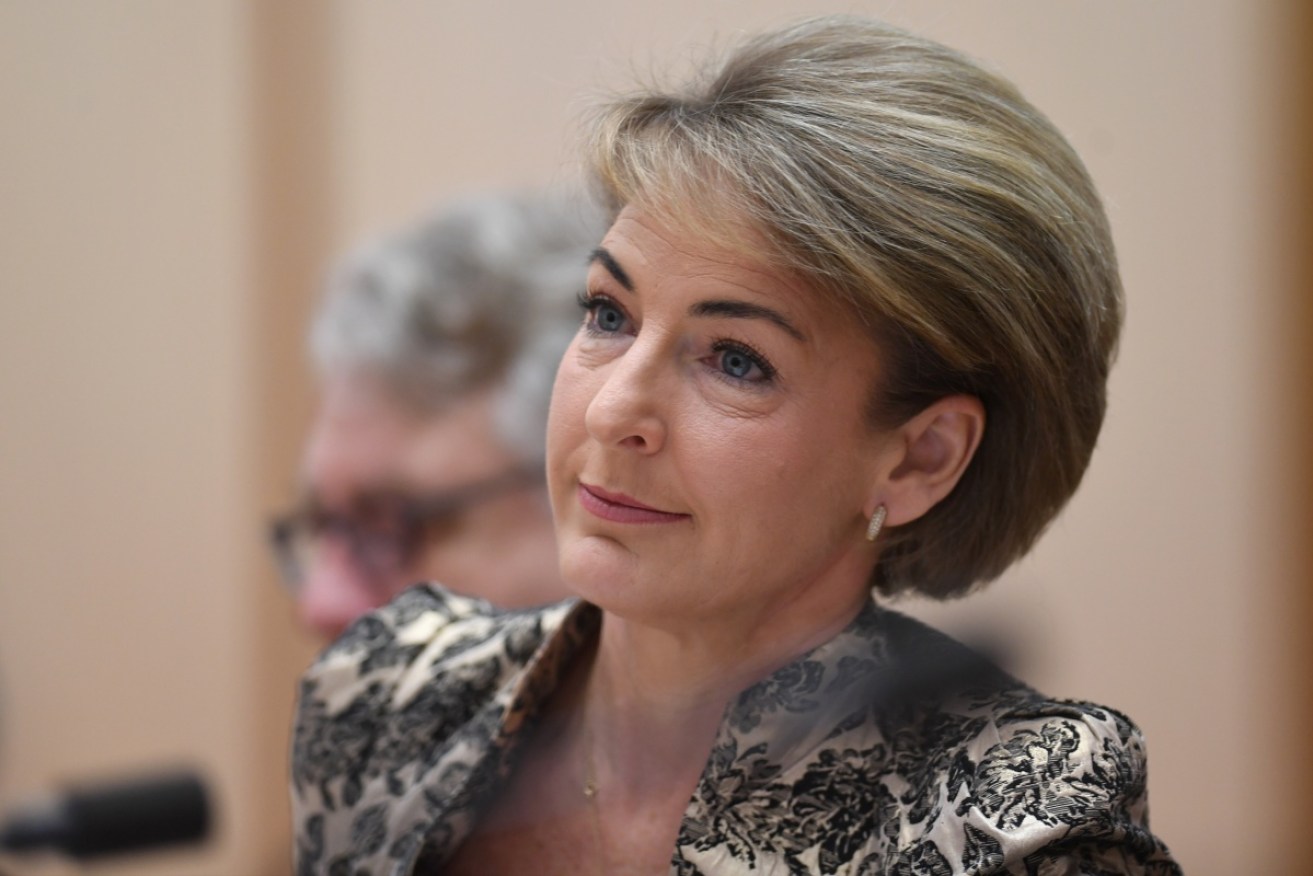AWU raids prompt Labor rethink on federal ICAC


Senator Michaelia Cash has so far kept her ministerial portfolio despite a staffer's leak. Photo: AAP
A national integrity commission or federal ICAC is now under serious consideration by the Labor Party.
Sources have told The New Daily that recent events – the failure of the Westminster convention of ministerial responsibility to hold Michaelia Cash accountable for the politically compromised AFP raids; the citizenship High Court scandal; and the Turnbull government’s refusal to protect Crown Casino whistleblowers – were breaking down that resistance.
“We leave ourselves open to attack. Unless there is an integrity commission with powers to confront the nagging perception that our federal political culture is conducive to corruption, we will always be distrusted,” one source said.
West Australian lawyer John Cameron, who helped to expose the ineligibility of MPs on the basis of prior citizenship, now established unanimously by the High Court, is the latest to push for a national integrity commission.
“There’s a crying need for an independent commission on corruption, as this case has demonstrated,” Mr Cameron told AAP.
He joins former NSW ICAC commissioner David Ipp QC, former Queensland royal commissioner Tony Fitzgerald QC, the global anti-corruption NGO Transparency International (Australia) and, significantly, the Australian Council of Trade Unions, as advocates for a new accountability regime in Canberra.
Successive scandals have taken their toll on the Turnbull government. The latest Newspoll released on Sunday night had the Coalition’s primary vote drop one percentage point to 35 per cent, with Labor steady at 37 per cent. Labor also retained its two-party lead at 54 to 46 per cent.
A parliamentary select committee looking at the justification for a national integrity commission reported on September 13. Both the Turnbull government and the Labor opposition have yet to announce their official responses to the report’s recommendations.
Party sources told The New Daily that while the first response should come from government, the federal parliamentary Labor Party was now closer to making a supportive decision.
Pockets of resistance reportedly remain within the NSW Labor Party where the work of the NSW ICAC in exposing former ministers Eddie Obeid and Ian Macdonald, now Her Majesty’s prisoners, had devastated voter support, only now recovering after six “wilderness” years in that state.

Federal police raided the Melbourne and Sydney offices of the AWU in recent days, triggering a political scandal. Photo: AAP
By majority (Coalition and ALP), the Senate select committee urged a more co-ordinated approach to accountability without directly recommending that a federal ICAC be established.
“On the basis of the evidence before it, the committee also believes that the Commonwealth government should carefully weigh whether a Commonwealth agency with broad scope to address integrity and corruption matters—not just law enforcement or high-risk integrity and corruption—is necessary,” the committee found.
“It is certainly an area of great interest to the public and irrespective of whether it is achieved by way of a new federal agency or by some other mechanism(s), current arrangements must be strengthened.”
But in minority or dissenting reports, the Nick Xenophon Team, Senator Derryn Hinch and the Greens all directly recommended that a national integrity commission be established because of “gaps” in the capability of current oversight bodies – the Australian Federal Police, the Commission for Law Enforcement Integrity, the Auditor General, the Ombudsman and the new Independent Parliamentary Expenses Authority.
Because the general public did not know to which agency corruption concerns could be raised, NXT recommended that the scope of the existing Commission for Law Enforcement Integrity should be expanded.
The contentious issue of public hearings by any federal anti-corruption body remains to be resolved. Most anti-corruption experts believe the educative benefits of procedurally fair public hearings will change internal cultures and help to restore public trust in government and its agencies.
Another justification for a federal ICAC has come with independent MP Andrew Wilkie’s use of parliamentary privilege to raise concerns by Crown Casino employees alleging poker machine tampering and regulatory failure.
The allegations, vehemently rejected by Crown chief executive John Alexander, are currently before the Victorian casino authorities.
In a significant test of the Westminster system, Mr Wilkie failed in his attempt in the House of Representatives to secure Coalition and Labor support for a parliamentary inquiry into his casino claims.
While Mr Wilkie told Prime Minister Malcolm Turnbull during question time that his informants were in fear of their lives, Mr Turnbull appealed to him to take any evidence through regulatory channels.
The issue of employment and witness protection for any informant making public interest disclosures is covered by protocols established through any integrity commission legislation. Mr Wilkie failed to secure protection of his witnesses through a parliamentary inquiry where privilege would help to indemnify them. If they are identified without public interest disclosure protections they will remain in jeopardy.
The Crown Casino allegations are pertinent because of a widespread public perception that integrity is compromised through slush fund donations from gaming, clubs, pubs and poker machine interests received by both the Labor and Coalition parties.








